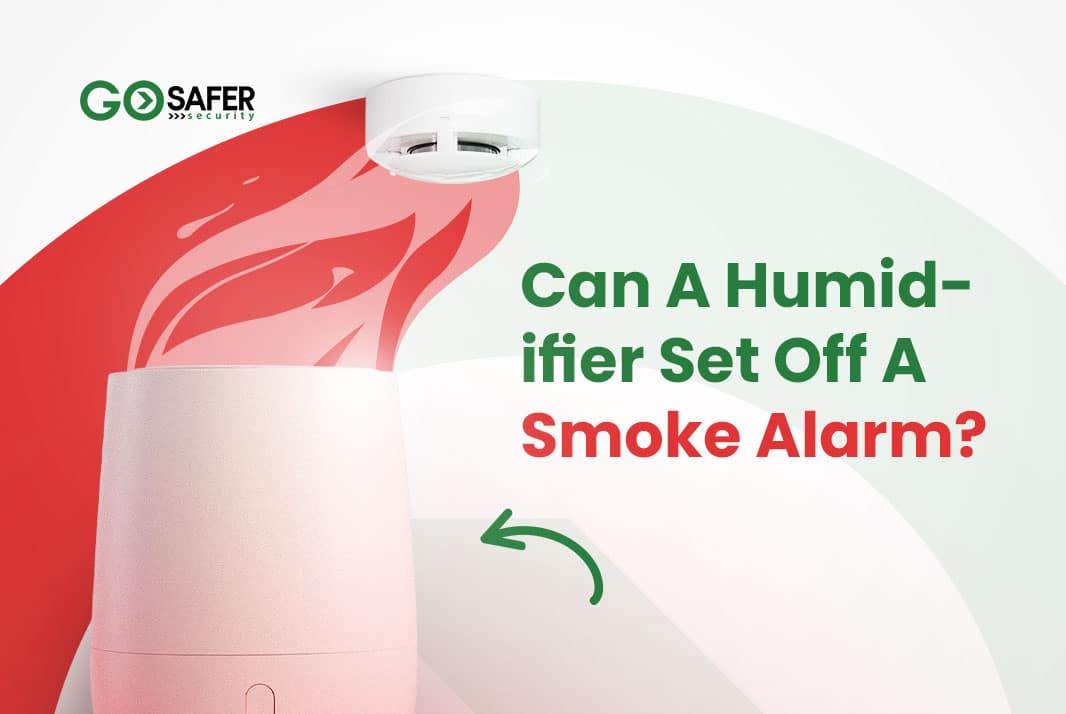Have you ever experienced your smoke alarm going off while using a humidifier? If so, you know how frustrating and alarming it can be. Humidifiers, which are designed to add moisture to the air, can sometimes interfere with smoke alarms, especially in homes where humidity levels get too high. But how exactly does this happen, and what can you do about it? In this post, we’ll explain the link between humidifiers and smoke alarms and offer practical advice on how to prevent unwanted alarms while keeping your home safe.
Table of Contents
ToggleHow Smoke Alarms Work
Smoke alarms are critical for home safety, providing early warnings of potential fires. There are two primary types of smoke detectors:
Ionization Smoke Detectors
Ionization smoke detectors use a small electrical charge to detect smoke particles. These alarms are more sensitive to flaming fires, which produce large amounts of heat and fast-moving smoke. They work by sending out an electric current that is disrupted when smoke particles enter the detection chamber, causing the alarm to sound.
Photoelectric Smoke Detectors
Photoelectric smoke detectors, on the other hand, are more sensitive to smoldering fires. They use a light source inside the detection chamber, and when smoke blocks the light beam, the alarm is triggered. These alarms are typically less sensitive to steam or mist but can still be affected under certain conditions.
Why a Humidifier Might Set Off a Smoke Alarm
A humidifier releases water vapor or mist into the air, and in some cases, this can interfere with smoke alarms. While the mist is not smoke, the small particles released by the humidifier can be mistaken by ionization smoke detectors for smoke particles, especially in enclosed spaces with poor ventilation. High humidity levels in your home can also increase the likelihood of false alarms.
Do Humidifiers Emit Smoke or Vapor?
Humidifiers don’t emit smoke. Instead, they produce either warm or cool mist to humidify the air. This mist can sometimes be thick enough to resemble smoke to the sensors in your smoke alarm. Cool-mist humidifiers are less likely to trigger alarms compared to warm-mist humidifiers, which produce visible steam that could confuse some smoke detectors.
If your humidifier’s mist is causing frequent false alarms, it may be time to evaluate its placement in your home. Learn more about how home alarm systems can be affected by environmental factors in this overview of smart home security.
Types of Smoke Alarms and Their Sensitivity
Ionization Alarms vs. Photoelectric Alarms
As mentioned earlier, ionization alarms are more sensitive to particles in the air, which makes them more likely to be triggered by water vapor from humidifiers. In contrast, photoelectric alarms are better at detecting larger smoke particles from smoldering fires, and they are less prone to being set off by mist.
Preventing False Alarms from Humidifiers
To avoid setting off your smoke alarm with a humidifier, consider the following tips:
- Place Your Humidifier Away from Smoke Alarms: The closer your humidifier is to the alarm, the more likely it is to trigger a false alarm. Move it to another part of the room to reduce the impact of the mist on the sensors.
- Ventilate the Room: Proper ventilation can help disperse the water vapor and prevent it from accumulating near your smoke alarm.
- Regularly Maintain Both Devices: Dust and moisture can affect the performance of both humidifiers and smoke alarms. Regular cleaning and maintenance are essential to ensure they work correctly. Learn more about alarm system maintenance and troubleshooting here.
How to Reset Your Smoke Alarm After a False Alarm
If your smoke alarm is triggered by your humidifier, resetting it is usually simple:
- Turn off the humidifier to stop the mist from spreading.
- Ventilate the room to clear the vapor.
- Press the reset button on your smoke alarm to silence it.
- Replace the alarm’s batteries if the alarm continues to go off.
If you need more detailed guidance on how to reset your alarm system, check out this helpful guide on resetting alarm systems.
Can a Humidifier’s Mist Raise the Temperature Around a Smoke Alarm?
One common concern is whether the mist from a humidifier can raise the temperature around a smoke alarm, causing it to trigger. The answer is no—humidifier mist does not increase the temperature in the room. Smoke alarms are designed to detect smoke, not changes in humidity or temperature. However, placing a humidifier too close to the smoke alarm may still cause it to go off.
When to Consider Upgrading Your Alarm System
If false alarms from your humidifier are becoming a regular issue, you may want to consider upgrading to a more advanced smoke alarm system. Modern smart smoke alarms are less prone to false alarms and come with features like real-time monitoring and remote access.
For more details on the best features to look for in a security alarm, visit this post on best security alarm features.
The Importance of Regular Alarm Maintenance
Regular maintenance of your smoke alarm can prevent false alarms and ensure that your home remains protected. Cleaning the alarm’s sensors and replacing batteries at least once a year can help reduce the chances of a false alarm. Regularly test your alarms and consider having a professional inspect your home’s system annually.
Conclusion
While a humidifier can occasionally set off a smoke alarm, it’s not a guaranteed outcome. By placing your humidifier in the right location, maintaining both your humidifier and smoke alarms, and considering an upgrade to your system if necessary, you can enjoy the comfort of humidified air without the worry of false alarms.For more information on ensuring your home’s security and avoiding false alarms, explore Go Safer Security and their comprehensive range of security solutions.








